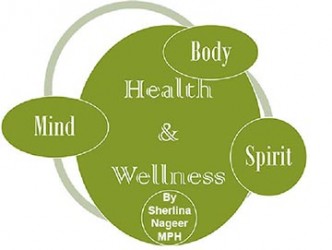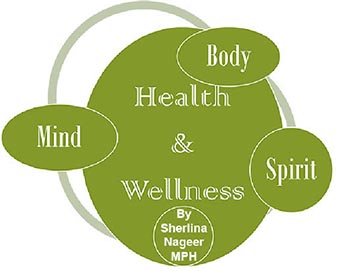Sexual orientation (how one identifies sexually, in terms of who they are sexually attracted to) and behaviour are important elements of health and wellbeing. Most obviously, there are some infections that are transmitted during sexual activity via the exchange of bodily fluids or by intimate skin-skin contact. However, sexual orientation also affects mental health.
Unfortunately, there is still a great deal of discrimination in the world today based on sexual orientation. Heterosexuality- sexual attraction between men and women- is the most common orientation, but homosexuality- sexual attraction between men and men (gay) or women and women (lesbian) and bisexuality (sexual attraction to both men and women) have been found in all societies worldwide. In fact, research has shown the existence of a wide range of sexual orientations, including in the natural world- with homosexuality and bisexuality also being observed in numerous animal species.
Transgender refers to individuals whose self-identity does not fit with the common understanding of male and female gender roles and usually does not match the sex they’re assigned at birth due to their external physical genitalia. Transgender therefore refers to a gender identity, not a sexual orientation. Transgender individuals experience thesame variety of sexual attraction as others and can be heterosexual, homosexual, or bisexual in orientation. There is evidence of transgenderism in numerous societies around the world from ancient to modern times, with both genetic and environmental factors influencing transgender expression.

Most LGBT (lesbian, gay, bisexual, and transgender) individuals want the same things as heterosexual (‘straight’) people- love, understanding, respect, happiness, meaningful employment, opportunities for self-expression, growth, and development, and a conflict-free life. It is also a fact that there have (and will likely always be) more heterosexual than non-heterosexual people in the world, so on the sheer numerical scale of things, LGBT people will never ‘take over’ anything. Finally, there is a great deal of data showing that sexual orientation is largely innate- we are born so, not really a choice that one makes or something that can be changed (although the environment does have some influence, as in many other aspects of life). As such, fears of LGBT people ‘converting’ straight people are highly irrational. However, as discussed in a previous column, fear is not always based on rational thought and unfortunately, still drives a great deal of the prejudice against LGBT people.
Like many other differences, sexual orientation has been used by the majority ‘straight’ population to oppress LGBT individuals with that minority sexual orientation, and to maintain systems that privilege heterosexuality. LGBT Guyanese, like their peers in many other countries in the Caribbean and worldwide, suffer from high levels of harassment, abuse, and violence, as well as widespread discrimination in accessing healthcare, education, housing, employment, and justice. Crimes against LGBT people are often not taken seriously by the police; in fact, there are specific laws (the sodomy law) that criminalize certain sexual practices and the gay population disproportionally, as well as laws against crossdressing for ‘dubious purpose’ that stigmatize the trans community. While these laws may not always be enforced, and while some LGBT individuals may find acceptance and tolerance within some spheres, the fact is that Guyana remains, in large part, a deeply hostile society for many LGBT people.
Many LGBT Guyanese live constricted lives, unable to reveal and revel in their identities at all times, for fear of becoming victims of abuse or violence, losing friendships, jobs, their place of abode, or status in society. With such constant stress a regular feature of their life, many LGBT Guyanese, not surprisingly, suffer from high rates of anxiety, depression, suicide, and other mental health disorders. LGBT youth are also greatly affected by bullying in schools, with many dropping out and failing to attain gainful employment, becoming very vulnerable to abuse and exploitation.
Although significant strides have been made in recent years, religious and sociocultural conservatism makes discussion of LGBT issues still mostly taboo in the public domain. LGBT issues are not addressed in sex education materials in schools, nor at most public health facilities. In addition, adequate systems have not yet been established to promote and ensure a culture of tolerance and acceptance; persons with discriminatory beliefs and behaviours still act with impunity in many instances, with scant effort made to uphold professional standards of equity and justice for all. LGBT persons often do not feel comfortable accessing public services in the first place, because of disrespectful treatment they receive. As a result, many LGBT people do not receive regular medical screenings, or withhold essential information from the healthcare provider when they do seek care. This has serious consequences for both individual and societal health- illnesses may go unaddressed, sick partners not reached, and poor health decisions made.
Discrimination on the basis of sexual orientation and the denial of basic human rights to LGBT Guyanese is a sign of a society seriously lacking in understanding and empathy. LGBT Guyanese are not to be feared, nor to live in fear. We must challenge and squash these hateful and nonsensical taboos, change societal norms to celebrate and embrace differences, and work to ensure respectful and equitable treatment and justice for all.
Sherlina can be contacted at ssnageer@yahoo.com





